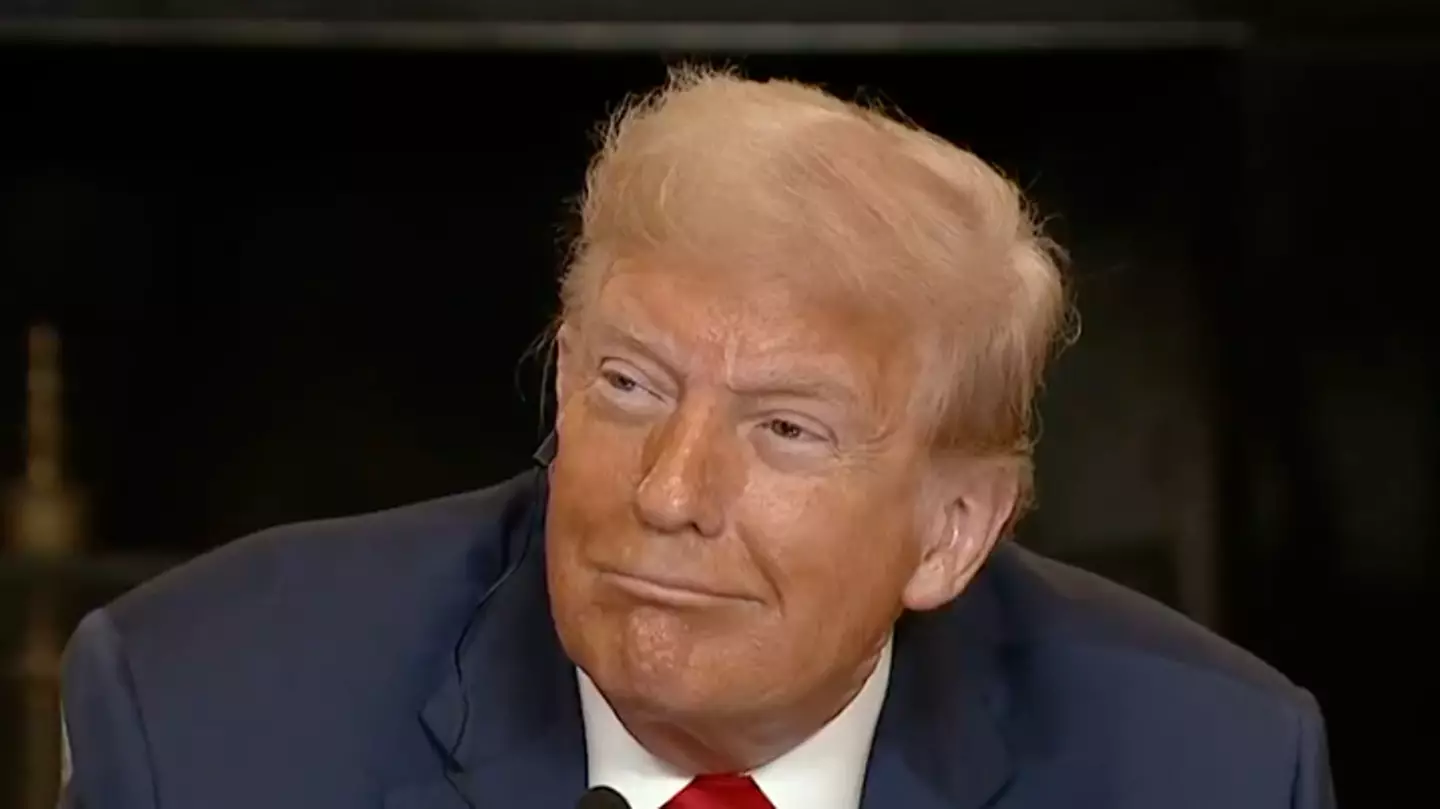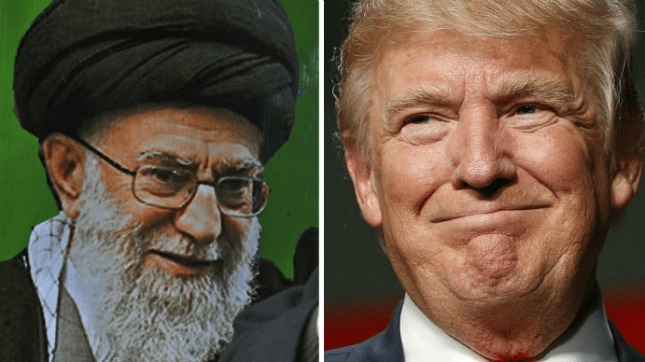Former U.S. President Donald Trump has responded to recent remarks made by a senior Iranian official during a televised discussion on Iranian state media. The comments, which referenced Trump in the context of Iran’s drone capabilities, were interpreted by some as provocative. Trump addressed the issue in a Fox News interview, maintaining a dismissive tone and downplaying any perceived threat. The incident has brought attention to the current state of U.S.–Iran relations and raised questions about national security protocol for former presidents.

Iranian Official Mentions Trump During Broadcast
On July 9, 2025, Mohammad-Javad Larijani, a senior advisor to Iran’s Supreme Leader Ayatollah Ali Khamenei, participated in a broadcast on Iranian state television. During the program, Larijani discussed advancements in Iran’s military technology, including its drone systems. While speaking about remote attack capabilities, Larijani referenced former U.S. President Trump by name.
His remarks, delivered in a joking manner, appeared to speculate on the theoretical use of a micro-drone. Though part of a broader discussion on technological innovation, the reference to Trump received widespread coverage in international media. According to The Independent, Larijani later stated, “Of course, we fight like men,” possibly to clarify that the earlier statement was not intended as a literal threat.
Trump’s Response During Television Interview
In response to the comments, Donald Trump was interviewed on Fox News, where he was asked about the Iranian broadcast. Host Peter Doocy raised the topic, asking Trump when he last went sunbathing — a reference to the remarks made by Larijani.
Trump replied with humor, stating, “It’s been a long time. I don’t know, maybe I was around seven or so. I’m not too big into it.” He then dismissed the original comments, saying, “I guess it’s a threat. I’m sure it’s not a threat, actually, but perhaps it is.”
His comments reflected a strategy often used by public officials when responding to international rhetoric — acknowledging the statement without escalating tensions.

Secret Service Response on Protection Measures
When contacted for comment, the United States Secret Service, which is responsible for the protection of current and former U.S. presidents, did not comment on the specific remarks made by Larijani. However, in a statement to Newsweek, the agency said:
“We operate in a heightened and very dynamic threat environment, and the safety and security of the President and all of our protectees remains our highest priority.”
This statement aligns with the agency’s long-standing policy of not discussing specific protective intelligence, while affirming that security measures remain in place for all former presidents as required under U.S. law.
U.S.–Iran Tensions in Context
The remarks from Iran come at a time of ongoing diplomatic strain between the two nations. The United States and Iran have long had a complicated relationship, particularly in matters relating to nuclear policy and regional security in the Middle East.
Earlier in 2025, tensions increased following reports that the U.S. had conducted operations targeting key nuclear development sites in Iran. These actions, according to official reports cited by Reuters, were described by U.S. officials as preemptive and defensive in nature.
In June 2025, Trump, during a press briefing, was asked whether he would support further action if intelligence agencies reported advanced uranium enrichment efforts in Iran. He responded, “Sure, without question. Absolutely, it has to be unbelievable.” While no specific plans were announced, his comments indicated support for continued vigilance regarding Iran’s nuclear capabilities.
Iran’s Advancements in Military Technology
Iran has continued to invest in developing drone technology, which it considers a vital component of its defense strategy. According to the U.S. Department of Defense, Iran’s drone program includes various unmanned aerial vehicles (UAVs) capable of surveillance and, in some models, precision strikes.
Analysts from the International Institute for Strategic Studies (IISS) have noted that Iran’s drone capabilities have become more advanced in recent years, with the potential to influence military dynamics in the region. These capabilities have raised concerns among international observers, especially regarding the risk of technology proliferation to non-state actors.
Diplomatic Channels and Future Prospects
Despite the rhetoric, diplomatic experts emphasize that direct communication and de-escalation efforts remain critical. The U.S. State Department has repeatedly stated its interest in preventing nuclear proliferation and promoting stability in the region through diplomatic means. Negotiations over Iran’s nuclear program continue to be a subject of international engagement, with European partners and the United Nations also playing key roles.
The Joint Comprehensive Plan of Action (JCPOA), commonly known as the Iran nuclear deal, was a major diplomatic effort intended to limit Iran’s nuclear activities in exchange for sanctions relief. The U.S. withdrew from the agreement in 2018, but efforts to restore or renegotiate terms have continued under various administrations.

Protection of Former U.S. Presidents
Under the Former Presidents Act (3 U.S.C. § 102), all living former U.S. presidents receive protection from the United States Secret Service. This protection is continuous and includes both physical security and intelligence coordination with federal agencies.
According to the Congressional Research Service, former presidents also receive office space, staff, and other resources to support their public appearances and correspondence. These measures reflect the principle that former presidents may remain prominent public figures and can be targets of politically motivated threats.
Media Coverage and Public Reaction
The remarks from Larijani received coverage across major news outlets, including The Independent, Newsweek, and Fox News. Public reaction varied, with some viewing the statement as rhetorical and symbolic, while others emphasized the importance of monitoring any foreign commentary related to U.S. public figures.
Experts in international relations and public diplomacy caution against overreacting to such comments, suggesting that strategic communication should prioritize measured responses over confrontation.
Conclusion
The recent exchange of words between Iranian state media and former U.S. President Donald Trump highlights the ongoing complexity of U.S.–Iran relations. While Larijani’s televised remarks drew attention for their tone and content, Trump’s response remained casual and non-confrontational. Meanwhile, official security agencies reaffirmed their commitment to the protection of all U.S. leaders, past and present.
The incident serves as a reminder of the influence former presidents continue to wield, both symbolically and in terms of security protocols. As global diplomacy continues to evolve, measured dialogue and clear policy communication remain essential to maintaining peace and international cooperation.
Sources
-
U.S. Secret Service – https://www.secretservice.gov
-
U.S. Department of Defense – https://www.defense.gov
-
International Institute for Strategic Studies (IISS) – https://www.iiss.org
-
The Independent – “Iranian official jokes about Trump being targeted by micro-drone”
-
Newsweek – “Secret Service Responds to Iranian Remarks About Trump”
-
Fox News – Trump interview broadcast on July 10, 2025
-
Reuters – U.S. military activity and statements on Iran (June 2025)
-
U.S. Congressional Research Service – Former Presidents: Benefits and Protection (crsreports.congress.gov)


